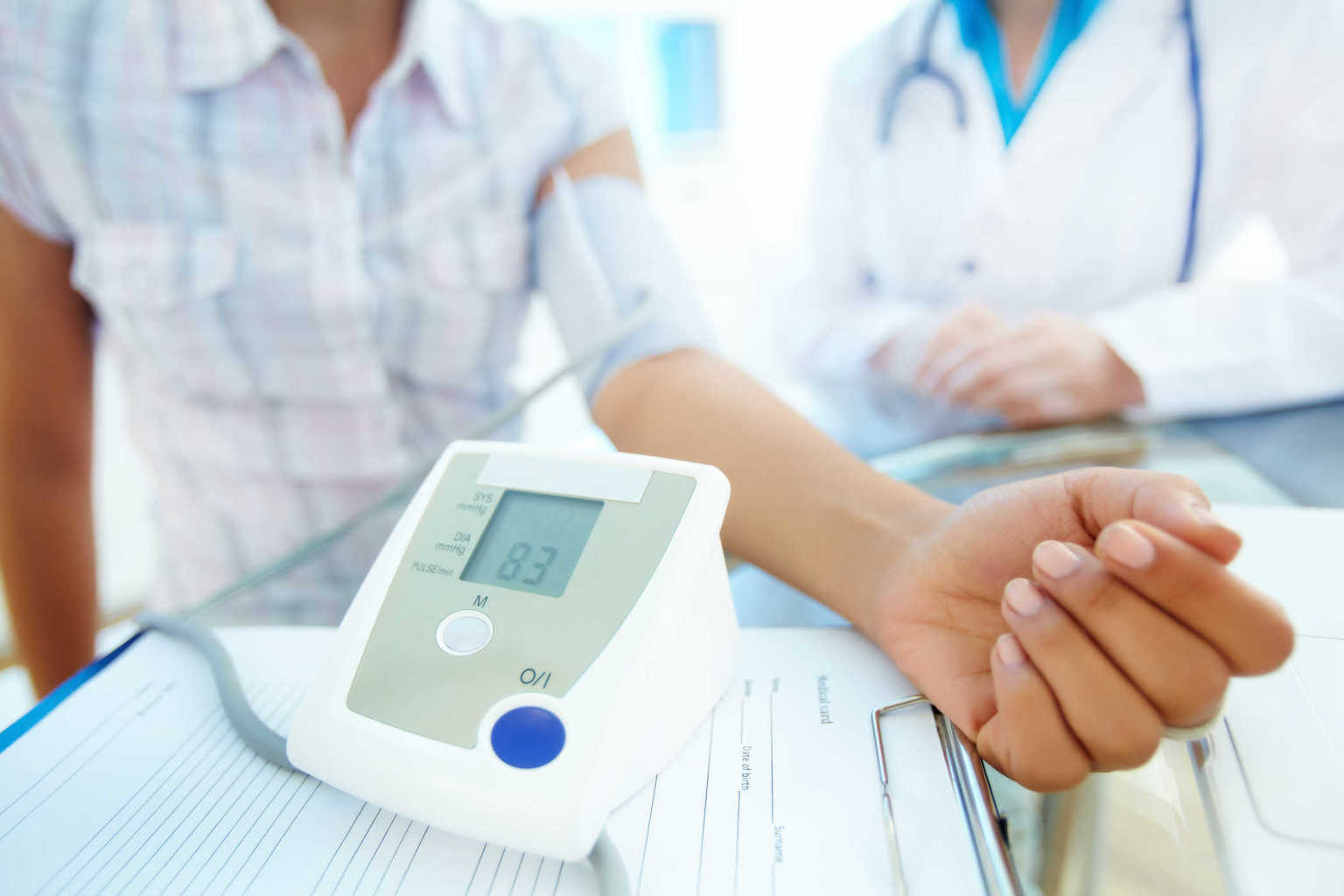Contents:
- Medical Video: High Blood Pressure | Hypertension | Nucleus Health
- What is normal blood pressure? What is normal blood pressure?
- Then, what if high blood pressure?
- What causes high blood pressure from normal tension?
- Then, what is low blood pressure?
- Characteristics of low blood pressure?
- The condition of the blood pressure of pregnant women must also be considered
- Blood pressure complications for pregnant women
- How to keep a pregnant woman's blood pressure stable?
- Know what the normal limit of blood pressure is based on age
- Blood pressure based on the age of the baby and children
- Blood pressure based on old age (40 years and above)
- How can normal tension be maintained?
Medical Video: High Blood Pressure | Hypertension | Nucleus Health
Normal blood pressure is blood pressure which is not too high and not too low. Blood pressure is a measure that can determine how strong the heart is to pump blood throughout your body. Then, what are the normal, high, low blood pressure and normal blood pressure numbers for certain health conditions?
What is normal blood pressure? What is normal blood pressure?
Normal blood pressure or tension in the body, generally occurs when the condition of the body is healthy and fit. Normal blood pressure in a person ranges from numbers 120/80 mm Hg.
Number 120 shows the level of pressure when the heart is pumping blood. The heart pumps blood to flow to all parts of the body. The number 120, or the number for blood pressure, is called the systolic number.
While at number 80, or the number below blood pressure, it is referred to as a diastolic number. The meaning of this number is the heart is taking a short break to pump blood.
Blood pressure is not always stable or stays in that number. This depends on what you are doing, feeling or the current health condition.
Even changes in position, from sitting to lying down, or vice versa, can affect the normal tension in your blood. All of these things can make high blood pressure or cause low blood pressure.
Even though your blood pressure is at normal blood pressure, you should not relax. However, if your systolic pressure is normal but your lower diastolic level is high, for example 120-139, You can be said to have pre-hypertensive blood pressure.
Pre-hypertension is a condition that leads to hypertension, or high blood pressure. This condition is dangerous and can pose a risk of chronic illness later on.
Then, what if high blood pressure?
When high blood pressure, you must be vigilant and attempt to restore the body to normal blood pressure. High blood pressure or hypertension is a condition that is more than normal tension, which is above 120/80 mm Hg.
Everyone is at risk of developing high blood pressure. WHO or the World Health Agency says that the number of people suffering from high blood pressure is increasing every year. Even the increase in numberdiction increased by 29 percent in 2025.
The case of hypertension that continues to increase is also increasingly common in Indonesia. Data from the Basic Health Research (Riskesdas) of the Republic of Indonesia Ministry of Health in 2013 showed that 25.8 percent of Indonesia's population had hypertension. His report showed that the number of sufferers increased to 32.4 percent.
The excessive condition of blood pressure from normal tension numbers is also often referred to as silent killer or "secret killer". This is because high blood pressure can lead to chronic life-threatening diseases, such as a heart attack.
People who have blood pressure whose numbers are above normal blood pressure, usually do not show any characteristics or only experience mild symptoms. However, severe high blood pressure may cause:
- Severe headache
- Dizzy
- Blurred vision
- Nausea
- Ears ringing
- Confusion
- Irregular heartbeat
- Fatigue
- Chest pain
- Breathless
- Blood in urine
- The sensation beats on the chest, neck, or ears
What causes high blood pressure from normal tension?
There is no known cause of excessive numbers of normal blood pressure measurements. But this soaring blood pressure can also be caused by a bad lifestyle and diet.
Hypertension is known to be caused by smoking. Please note, just one cigarette can cause a direct surge in blood pressure and can increase systolic blood pressure levels by 4 mmHG.
Nicotine in tobacco products stimulates the nervous system to release chemicals that can constrict blood vessels and trigger high blood pressure.
Another example, mostly eat salty food, which contains sodium (processed food, canned food, fast food), and foods or drinks that contain artificial sweeteners can also increase cholesterol or high blood pressure
Then, what is low blood pressure?
Low blood pressure, or hypotension, is a condition of a low number of normal blood pressure measurements. This is characterized by tension sizes below 90/60 mmHg.
Low blood pressure occurs when the pressure on the arteries is so low that blood does not deliver enough oxygen and nutrients to the organs of the body. As a result, these organs do not function normally and may be damaged, either temporarily or permanently.
There are various kinds of things that cause low blood pressure, like pregnancy, allergies, psychological factors, or heart problems. Although not all low blood pressure is a serious condition, you still should not underestimate it. In severe cases, low blood pressure can cause death.
Characteristics of low blood pressure?
Low blood pressure is sometimes interpreted as a sign of not enough blood flowing in the brain and other vital organs, so that it can cause several symptoms such as:
- Dizziness or body feels light
- Fainted
- Blurred vision
- Heart rate is faster than normal and the rhythm becomes irregular
- Feeling confused
- Nauseous or feeling unwell
- Weak
- Feeling cold
- Pale skin (pale due to illness)
- Feel thirsty or dehydration. Dehydration can be a cause of decreased blood pressure
The condition of the blood pressure of pregnant women must also be considered
The condition of blood pressure numbers that exceed the normal blood pressure limit, often occurs in ibu get pregnant. Hypertension is the most common medical problem in pregnancy. At least 2-3 percent of pregnancies are experienced. The blood pressure of pregnant women must be diligently examined, and try to have normal blood pressure during pregnancy.
Hypertension can increase many dangerous risks to the mother and fetus. Examples such as decreased blood flow to the placenta to premature birth. In the case of increased blood pressure of pregnant women, obstetricians or midwives can monitor the condition of the mother.
Unfortunately, until now there have been no specific recommendations regarding tests related to stroke, as well as stroke prevention measures after childbirth.
Blood pressure in women, whether pregnant or not, must be closely monitored to detect the appearance of high blood pressure, including cholesterol, diabetes, and other signs of stroke risk.
Blood pressure complications for pregnant women
Preeclampsia
Preeclampsia is a condition of blood pressure in pregnant women that shows signs of hypertension. This condition generally originates from the placenta which does not develop properly due to interference with blood vessels. The exact cause is not fully understood.
To support the growth of the baby, the placenta requires a large and constant blood supply from the mother. In the case of the causes of preeclampsia, Placenta those who do not get enough blood supply can trigger preeclampsia because the placenta is not well developed as it has been formed during the first half of pregnancy.
Eclampsia
Eclampsia is a seizure that can cause coma in pregnant women. This is a rare but serious condition for a pregnant woman's blood pressure. Complications of blood pressure for pregnant women is a severe condition of preeclampsia, which is pregnancy complications when the blood pressure of pregnant women has too high a pressure.
Preeclampsia and eclampsia attack the placenta, the organ that delivers oxygen, blood, and nutrients to the fetus. If the blood pressure of a pregnant woman is high and reduces blood flow, the placenta cannot function properly.
This can cause your baby to be born with a low body weight or other health conditions. Problems with the placenta often require preterm labor for the health and safety of the baby. In rare cases, this condition can cause stillbirth or stillbirth.
Low blood pressure during pregnancy
In addition to increased blood pressure, there is also a decreased blood pressure for pregnant women. If you are pregnant, there will be an increase in blood flow in your body to maintain the supply of oxygen and nutritional food to the fetus. This causes the blood pressure of pregnant women to decrease.
That said, this is the main cause of low blood pressure in pregnant women or hypotension in most pregnant women. However, there are also other causes that cause low blood pressure for pregnant women.
The causes include having Twins, medical history of hypotension, or underlying medical illnesses such as dehydration, certain heart disease, and anemia.
In addition, factors such as vitamin B12 or lack of folic acid cause a woman's blood pressure to be low, such as if she is lying in bed for a long period of time. Use epidural also often causes a decrease in blood pressure for women who are pregnant.
How to keep a pregnant woman's blood pressure stable?
The blood pressure of a pregnant woman must be maintained. The trick is to diligently take care of your own health and your content. For example in the following ways:
- Visit your doctor regularly during pregnancy to check the blood pressure and womb conditions
- The doctor will prescribe the safest blood pressure medication in the most appropriate dose.
- Blood pressure of pregnant women can be maintained if the mother follows a variety of physical activities recommended by the doctor.
- To keep the blood pressure of pregnant women stable, avoid salty foods that contain excess sodium.
- Avoid cigarettes, alcohol and illegal drugs. Consult with a doctor before taking certain medicines.
Although various studies have been conducted, so far the researchers have not found the most effective way to prevent preeclampsia. The doctor may give daily low-dose aspirin (between 60-81 milligrams) starting at the end of the first trimester if the mother had previously had a preterm labor (before 34 weeks' gestation), or several times had preeclampsia in a previous pregnancy.
To avoid complications, the doctor may recommend induction of labor a few days before the date of birth prediction. Induction may be needed earlier if the mother shows symptoms of preeclampsia or other complications.
In the case of severe preeclampsia, the doctor will give medication during labor to help prevent seizures. Does not rule out the possibility of a caesarean section.
After the baby is born, it is advisable to give breast milk despite the conditions of blood pressure in pregnant women, even while on medication. Discuss adjustments to drug dosages and alternative blood pressure medications with your doctor. The doctor may advise the mother not to breastfeed shortly after taking medication.
Know what the normal limit of blood pressure is based on age
Normal blood pressure levels based on age usually continue to increase throughout life. Because most babies and children are not at risk of developing blood pressure problems.
Doctors cannot measure children's blood pressure regularly. For all adults, regardless of age, blood pressure based on adult age which is considered normal ranges from 120/80 mmHG.
Blood pressure based on the age of the baby and children
Blood pressure based on the age of the baby to childhood will change over time. Blood pressure based on the child's age can change or be different, unless your child is at risk of developing blood pressure problems, such as kidney disease or diabetes.
The doctor is not likely to take blood pressure at all. Determining blood pressure based on the age of the baby to children is a bit complicated, because it depends on the size and age of the child. .
However, if he has excess blood pressure based on the age of his children, and his blood pressure is greater than the 90 percent normal limit for his age, he can be diagnosed with hypertension.
Blood pressure based on old age (40 years and above)
According to HighBloodPressureInfo.org, as quoted from Livestrong,blood pressure based on age around 60 to 64 years is 134/87 mmHg. The reason is, the more age increases, the body needs blood to pump blood throughout the body harder.
So not infrequently blood pressure for normal elderly people becomes a little higher than the pressure for normal adults.
How can normal tension be maintained?
Normal tension or stable blood pressure must always be maintained. Too low blood pressure can cause dizzy. While blood pressure is too high it may not cause any symptoms, but over time it can also trigger stroke. T
high blood pressure and continuous occurrence can also cause congestive heart failure, kidney failure, atherosclerosisand other complications.
The more you get older, the precaution becomes more important. Systolic pressure usually slowly rises after you reach the age of 50 years. Apply a healthy lifestyle to get a stable normal tension condition as below:
- Keep your body weight ideal, which can be achieved with a healthy diet and exercise. Having a healthy weight will reduce your chances of getting hypertension.
- Always check blood pressure regularly to get normal blood pressure results and when you need to be alert
- Avoid eating salty foods that contain high sodium. Start eating vegetables, fiber-rich foods, fruits, and stay away from sugary drinks to prevent complications in blood pressure.
- Try to exercise regularly every day. At least you can keep yourself active in order to prevent normal blood pressure from rising or lowering.














